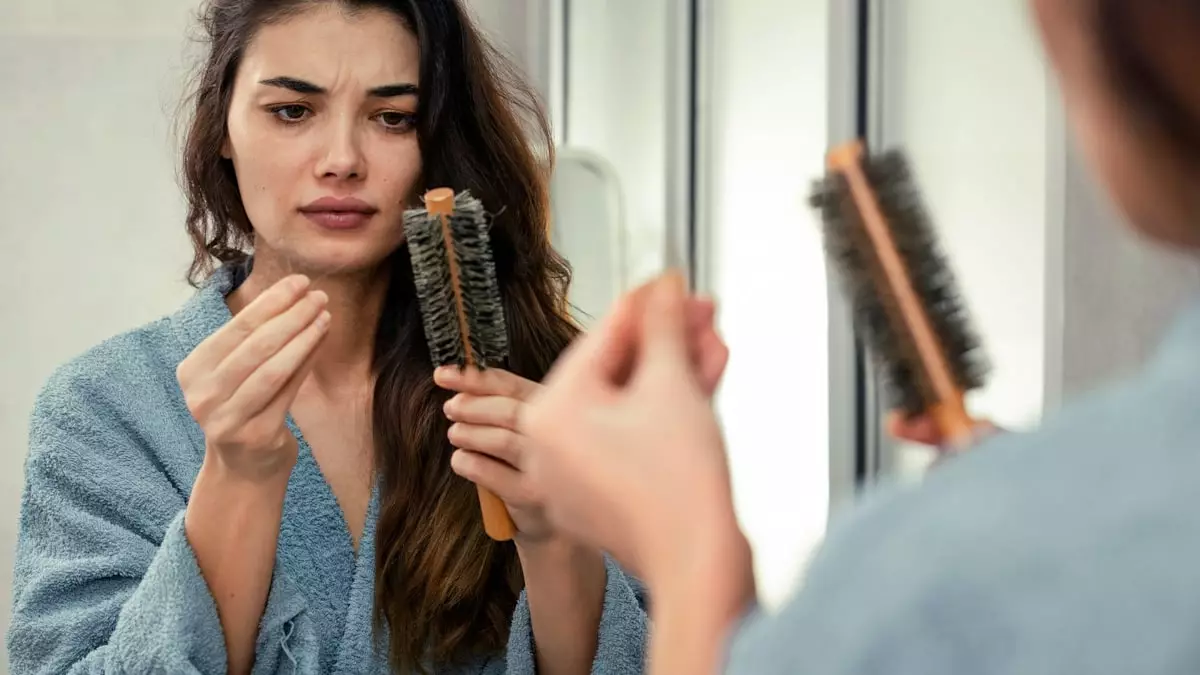As the popularity of weight loss medications like Mounjaro skyrockets, so too does the dialogue surrounding off-label effects. The burgeoning buzz has found a focal point in the online community, with a staggering 250% increase in searches related to “Mounjaro hair” in just three months. TikTok, a platform rife with personal stories, is overflowing with videos of individuals expressing their concern over unexpected hair thinning post-Mounjaro initiation. While not universally experienced, these anecdotal accounts are stirring an increasing amount of anxiety and calls for answers.
Mounjaro, a glucagon-like peptide-1 (GLP-1) receptor agonist, serves a dual purpose: managing blood sugar levels while facilitating significant weight loss. The emergence of hair loss as a significant side effect, although not directly caused by the drug, can be traced to the physiological and psychological ramifications of swift weight reduction and changes in appetite regulation.
Understanding the Mechanisms of Hair Loss
The correlation between rapid weight loss and hair loss isn’t entirely shocking yet merits scrutiny. One leading explanation offered by experts at Novus Medical stipulates that such drastic changes can engage the body’s stress response. This intrinsic mechanism prompts the body to reallocate energy toward vital functions, consequently sidelining non-essential processes like hair growth. Under this paradigm, hair follicles may prematurely transition into the telogen phase—commonly known as the resting phase—thereby escalating shedding rates and leading to noticeable hair thinning.
Another pivotal factor involves appetite suppression, a well-documented effect of Mounjaro. As the drug diminishes hunger cues, users may inadvertently deprive themselves of essential nutrients that support a healthy mane—namely protein, iron, and essential fatty acids. Hair is primarily composed of keratin, a protein that thrives on a nutrient-rich diet. Without adequate protein intake, the impact on hair quality can be tangible, leaving locks more susceptible to breakage and poor growth.
Navigating Nutritional Needs
For those who choose the Mounjaro route, it becomes essential to maintain a keen focus on nutritional intake to combat potential hair loss. Deliberately including high-quality protein sources at each meal—such as eggs, lean meats, legumes, and nuts—can bolster hair strength and resilience. Moreover, introducing healthy fats, which play a crucial role in hormone production and overall scalp health, can enhance the condition of hair follicles.
Serious consideration of hydration is also crucial. Mounjaro can mute thirst signals, leading to unintended dehydration. Adequate hydration impacts scalp circulation and, in turn, nutrient delivery to hair follicles. Encouraging a routine of consuming 1.5 to 2 liters of water daily can enhance follicle health, while the addition of electrolytes can further improve water absorption, preventing premature expulsion from the body.
Stress Management and Sleep: The Unsung Heroes of Hair Health
The psychological aspect surrounding weight loss and lifestyle alterations also bears repeating. Weight loss, especially rapid, often engenders a stress response in the body. With stress comes elevated cortisol levels, which can detrimentally affect hair growth cycles. Consequently, incorporating stress-reduction practices—such as yoga, meditation, or simple mindfulness techniques—can foster a more conducive environment for hair vitality.
Sleep, often an overlooked element, is equally fundamental. Inadequate rest hampers tissue regeneration and hormonal balance, both of which are vital for maintaining healthy hair. The ideal is to strive for 7-9 hours of restorative slumber, as sleep serves as the body’s natural rejuvenator. Those facing hair loss concerns should prioritize sleeping habits as a form of proactive care.
Advanced Treatments and Hope for the Future
For individuals encountering significant hair loss, there are avenues worth exploring, including innovative therapies like RF microneedling. Treatments such as Sylfirm X with Morphiya are capturing attention with their cutting-edge techniques that combine radiofrequency with effective exosome technology. This approach is promising for revitalizing dormant hair follicles by enhancing blood flow to the scalp, thereby potentially reinvigorating hair growth cycles.
Boris Hodakel, the founder of We Are Feel, passionately advocates for a paradigm shift in the understanding of female hair loss, emphasizing that nearly 40% of women will endure hair loss at some juncture in their lives. His call to action underscores the importance of destigmatizing women’s experiences with hair loss, ensuring their concerns don’t slip through the cracks of a narrative historically dominated by male experiences.
Navigating the landscape of weight loss medications like Mounjaro involves a dual focus on efficacy and the potential costs to overall health, including hair integrity. The key lies in awareness, proactive nutritional choices, and mental health practices aimed at sustaining not just bodily transformation but a holistic sense of wellbeing.

